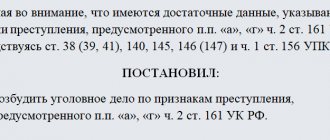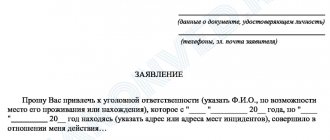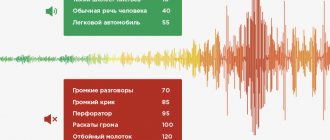In 2021, information is often disseminated on the Internet that an amnesty will be announced very soon in the Russian Federation.
Some even name the supposed days on which they want to coincide with the amnesty. In addition, most human rights activists are confident that this procedure must be carried out this year.
In this article we will take a detailed look at what amnesty is, what articles fall under the amnesty and other nuances relating to this concept.
Signs of amnesty
Characteristic features of the amnesty:
- announced by the State Duma of the Russian Federation;
- for the announcement, the Resolution of the State Duma of the Russian Federation is used, and not a law or other regulatory act;
- mitigation of punishment is carried out for an indefinite number of persons, pardon is applied on an individual basis by decision of the President of the Russian Federation;
- There are different procedures for applying amnesty: complete release from the main or additional punishment, reduction of the term or replacement with a more lenient type. The procedure for application and articles are indicated in the Resolution of the State Duma of the Russian Federation.
Currently, only criminal amnesty is applied, that is, mitigation of punishment for sentences passed in criminal cases. Recently, attempts have been made to introduce an amnesty for administrative cases, but this is not provided for by law.
It is still unknown whether a criminal amnesty will be declared in 2022 in Russia; it depends on many factors. So far, only projects for 2021 can be found in the public domain; projects for 2022 are known only from the words of deputies and the media.
Why amnesty is needed
According to statistics, 50% of the population approves of the idea of amnesty, and only a quarter disagree. Men and young people are more receptive to the idea of mitigating sentences for those convicted of minor crimes.
There are more prisoners and people in custody in our country than in European countries. Despite changes in criminal legislation, many receive fairly severe sentences even for minor crimes. The economic issue of keeping citizens in custody is also acute.
In Russia, amnesty serves as a kind of counterbalance to the severity of judicial and law enforcement agencies.
Amnesty projects in 2020
In accordance with the information presented on the official website of the State Duma of the Russian Federation, several projects are currently under consideration. The last one was introduced in June 2021 - this is a document regarding the extension of the amnesty to administrative cases.
This project provided for the abolition of fines for citizens of the Russian Federation for violating traffic rules.
Two projects were introduced in January and February 2021 and are timed to coincide with the memorable date - the 75th anniversary of the Victory over fascism. This is a common practice; amnesty in Russia is always announced in honor of the anniversary of some important historical event.
The likelihood that these projects will be used in 2022 is low, since the memorable date has already passed. In addition, politicians have already justified the refusal of amnesty in 2021 in its traditional form.
How to find out exactly whether there will be a criminal amnesty in 2022, when will it be and under what articles?
It must be taken into account that the resolution is usually submitted to the State Duma immediately before the memorable date and is adopted quite quickly. But news about the amnesty will certainly appear in the media in advance.
As conclusions
Thus, today there is no reliable information about whether an amnesty will be held in 2021. In accordance with the Constitution of the Russian Federation, the decision on the procedure for conducting an amnesty and the resolution on its expediency is made by the State Duma, but the global epidemic has made adjustments to the procedure for discussing some bills, and the discussion of many issues has been postponed. For example, the amnesty planned for 2021, timed to coincide with the 75th anniversary of the Great Victory, was not accepted. It is also unknown in what form the amnesty will be implemented if it is carried out - in the form of a reduction in sentences, expungement of a criminal record or complete release from punishment.
What grounds for exemption from criminal liability are contained in the Criminal Code?
Read
Administrative and criminal liability for disobedience to police officers
More details
What is unlawful deprivation of liberty? Signs of a criminal offense
Look
Why was there no amnesty in May 2021?
Expert opinion
Ilyin Vladislav Denisovich
Practicing lawyer with 8 years of experience. Specialization: civil law. Extensive experience in drafting contracts.
State Duma deputy, chairman of the legislation committee, lawyer Pavel Krasheninnikov gave an explanation to journalists about this. He pointed out the following problems:
- Constant amnesties for the same articles lead to their actual decriminalization. As a result, citizens cease to fear criminal punishment. After all, it is already known in advance who will be affected by the amnesty and when: criminals who have committed minor and moderate offenses will be released from punishment, and approximately once every 3-4 years;
- in 2021, the state had more serious problems in the form of coronavirus, it was necessary to limit the social activity of citizens;
- amnesty in connection with the latest changes in the Criminal Code of the Russian Federation (a day in a pre-trial detention center is equivalent to a day in prison) is losing its meaning.
This motivation calls into question the very institution of amnesty in Russia.
Manipulation and bills
The second topic that Eva Mikhailovna brought up for discussion was the support of bills developed with the participation of the HRC:
1. Provides for prisoners in pre-trial detention centers to have calls and visits with their closest relatives without the permission of the investigator;
2. Allows the seizure of a prisoner’s total correspondence only by court decision.
The development of documents is related to the existing practice of “extorting” testimony through manipulation of visits and calls, which, of course, violates the rights of prisoners and undermines trust in the authorities. It is expected that the adoption of these bills will allow “to remove oppression from prisoners and their loved ones and will force the investigation to efficiently collect evidence of possible guilt instead of extorting a confession from the possibly innocent.”
Merkacheva also recalled another fact that is common among prisoners - the basic lack of a watch. The journalist noted that this practice was used back in the 30s and is still in effect.
Eva Mikhailovna also decided to raise the topic of medical care for prisoners. The journalist asked Vladimir Vladimirovich to express his opinion on the fact that investigators do not recommend taking this or that prisoner to the hospital, for consultation or for surgery.
At the end of her emotional speech, the journalist asked to pass a law on paying for the travel of volunteers of the Public Monitoring Commission to the places where prisoners are staying, and also to make the procedure for admitting candidates to the ranks of the Public Monitoring Committee more transparent. The last request is related to cases of people who are not interested in the result being appointed to the supervisory commission.
Last news
Apparently, the LDPR party is preparing a new amnesty project for 2022. Alexander Dupin, press secretary of Vladimir Zhirinovsky, first told the radio station “Moscow Speaks” about this. Then the head of the LDPR himself confirmed this news. In what month and for what articles the amnesty will be offered is still unknown. All that is known at the moment:
- it is planned to coincide with the 30th anniversary of the State Emergency Committee;
- it will concern those persons who have committed “not the most terrible crimes”: those who do not pose a great danger to society due to the lack of intent or serious consequences.
READ How long can you be on sick leave without being fired from your job?
It is unknown when this project will be accepted and whether it will be accepted at all.
Should we expect an amnesty for criminal cases in 2022? Prospects and expectations
In December 2021, Russian President Vladimir Putin took the initiative to consider the possibility and general feasibility of a large-scale amnesty in Russia. This decision was caused by the cancellation of the previously planned amnesty for 2021, which could not be carried out due to the difficult epidemiological situation in the world.
- Criminal amnesty in 2022
- Prospects for the
- Who has the greatest chance of being included in the amnesty if it is adopted?
- For whom the amnesty will definitely not be carried out
- Why the amnesty did not take place in 2021
- As conclusions
- FAQ
Criminal amnesty in 2022
The decision on whether an amnesty will be held in 2022 must be made by the State Duma of the Russian Federation. The last amnesty held in Russia took place in 2015 and was timed to coincide with the celebration of the seventieth anniversary of Victory in the Great Patriotic War.
At the end of December 2021, at the next meeting of the Council for the Development of Civil Society and Human Rights, the President addressed the Government of the Russian Federation, which spoke of the need for an amnesty in 2022. To date, the State Duma has not made a decision on the advisability of holding it; the question remains open.
In his address, Vladimir Putin emphasized that the conditions for mass amnesty must be worked out as carefully as possible in order to prevent the criminalization of the situation in the country.
Prospects for the
According to the country's leadership, an amnesty is necessary. This act makes it possible to show humanism to those citizens who have been convicted of committing crimes classified as minor or moderate, and also to significantly reduce the burden on the penal system.
Despite the direct order of the President, there is currently no information from official sources about the preparation of the bill. Information about preparations for the amnesty and its conditions is unofficial.
It is not yet possible to say for sure whether a criminal amnesty will be declared in Russia in 2022; the decision depends on many factors. Only projects submitted in 2021 are publicly available, and new ones are known only from the words of State Duma members and the media.
As of January 2022, several bills are being discussed in the State Duma, the last of which was introduced in the summer of 2021. It touches on the topic of the possibility of extending the amnesty to cases of an administrative nature. The same bill also discussed the abolition of penalties for citizens who committed traffic violations.
Two more bills were timed to coincide with the anniversary of the Great Victory - the 75th anniversary of the end of the Great Patriotic War. These projects were of a “habitual” nature, since amnesties in the Russian Federation are often timed to coincide with some important event in the history of the country.
It is worth noting that the likelihood of using the listed bills in 2022 is extremely low, since the memorable date has already passed , and a refusal was signed by political figures regarding the 2021 amnesty in its traditional form.
According to the latest data, a new draft amnesty law for 2022 is being developed by members of the Liberal Democratic Party. This fact was confirmed by Vladimir Zhirinovsky’s press secretary Alexander Dupin. This news was also confirmed by the immediate head of the party.
The date of the amnesty in 2022 and the articles falling under its scope are unknown at the moment (end of January 2022). It only says that the amnesty is planned to coincide with the thirtieth anniversary of the State Emergency Committee, and it will affect those persons who were convicted of crimes that do not pose a great danger to society due to the lack of intent or significant consequences.
Who has the greatest chance of being included in the amnesty if it is adopted?
Most often, in accordance with the laws of the Russian Federation, the following categories of citizens are subject to amnesties:
- Persons under the age of majority.
- Citizens who are parents or legal guardians of young children.
- Persons who have reached retirement age.
- Convicted for the first time under articles classified as non-serious or moderately serious.
- Participants in combat operations.
- Persons with a disability confirmed by relevant documents.
Currently, the Russian Federation only operates a criminal amnesty, within the framework of which a mitigation of punishment can only be carried out for those sentences that were passed in criminal cases. Previous attempts to introduce an administrative amnesty were unsuccessful.
For whom the amnesty will definitely not be carried out
Regardless of what format the 2022 amnesty will take, it will not apply to the following categories of convicted citizens:
- Those who are serving a sentence for committing particularly serious and serious crimes, including murder, robbery, terrorist acts, banditry, etc.
- Those who have repeatedly been convicted of violating the regime in force in the colony where they are serving their sentence.
- Those who committed crimes in a colony while serving their sentence.
- Previously amnestied, but having committed new crimes, regardless of their severity.
Who will be released first?
Before indicating which articles of the Criminal Code of the Russian Federation were included in the amnesty, it is important to note the categories of citizens who are planned to be released first:
- veterans of the Great Patriotic War;
- those who have served their Motherland and at the same time stumbled before the law for the first time (participants in military operations in Afghanistan, Chechnya, the North Caucasus; persons participating in the liquidation of the consequences of the tragedy at the Chernobyl Nuclear Power Plant);
- having state awards of the USSR, Russian Federation;
- pregnant girls and women;
- single fathers with minor children;
- mothers with small children, with disabled children;
- women with a criminal record of up to 6 years and who have served a third of the sentence;
- prisoners of retirement age (men over 60, women over 55);
- persons with disabilities of groups I and II;
- juvenile offenders sentenced to 6 years or more and who have already been behind bars for more than one year;
- persons with a suspended criminal record;
- having deferred sentences;
- persons with a criminal record without imprisonment;
- patients with tuberculosis of the first and second groups, registered in the appropriate dispensary;
- persons with cancer of the last stages - III and IV;
- convicted of crimes committed without intent, through negligence (term - no more than five years).
Will there be an amnesty in 2022 and under what articles?
The government has already made it clear whether there will be a criminal amnesty in 2022 and for what articles. On the sidelines of the State Duma they do not deny that such a decision will be made at the official level in the near future.
According to experts, this is greatly facilitated by the increase in the incidence of coronavirus infection among prisoners. In the current situation, there is a need to improve their living conditions, which do not always meet approved sanitary and technical requirements.
The problem can be solved through a mass amnesty, changing the preventive measure for citizens who are serving sentences for minor violations.
Unsanitary and overcrowded cells
The initiator of a broad amnesty for criminal cases in 2022 in Russia was the Human Rights Council, which is concerned about the rapid spread of coronavirus infection among prisoners. This position was first supported in the State Duma, and then in the Federation Council of the Russian Federation.
But at the moment, the amnesty proposal is purely hypothetical. There are no clear deadlines or detailed information about the procedure for its implementation.
READ Cassation appeal against an appeal ruling in a civil case: sample 2022
Expert opinion
Ilyin Vladislav Denisovich
Practicing lawyer with 8 years of experience. Specialization: civil law. Extensive experience in drafting contracts.
As it became known, the HRC was tasked with drafting the bill. According to the provisions of such a document, within the framework of the amnesty, criminal cases for frivolous and minor crimes should be terminated.
In addition, the Human Rights Council advocates suspending the investigation of cases under articles that provide for imprisonment for a term of less than 5 years. Thanks to this solution, it will be possible to release from prison prisoners who are least likely to cause further harm to society.
Previously, the issue of amnesty was raised at the highest level - in the presidential administration after a request from human rights activists. They came up with a proposal to transfer some of the prisoners serving their sentences in colonies to house arrest.
Human rights activists explained their request by saying that places of deprivation of liberty are often overcrowded with people, they have unsanitary conditions of detention, and this increases the risk of convicts becoming infected with coronavirus infection.
In response to the request, human rights activists were sent a response stating that the presidential administration does not have the authority to make such decisions unilaterally. Any proposal to improve the norms of current legislation must be agreed upon with the Ministry of Justice of the Russian Federation, which is authorized to oversee compliance with current legal acts in this field of activity.
In this regard, for an objective and comprehensive analysis of the situation and consideration of the proposal of human rights defenders, the presidential administration submitted a request to the Ministry of Justice to receive relevant materials and documents.
For what articles is amnesty expected?
The decision on whether there will be a criminal amnesty in 2022 and under what articles only the State Duma is authorized to make. At the same time, the State Duma must be guided by the current norms of relevant legislation and the relevant articles of the Constitution of the Russian Federation.
Considering that there is no information yet on the exact date of the amnesty, it could be implemented in any quarter of next year.
As part of such a process, mainly citizens who cannot cause great harm to society will be released from prison. Accordingly, it can be assumed that the following categories of persons will be amnestied:
- veterans and disabled people of all groups;
- teenagers;
- women (primarily mothers of young children);
- terminally ill prisoners who require constant care and medication support;
- citizens who have been given a short sentence in prison (as a rule, we are talking about crimes of medium gravity);
- prisoners who were able to achieve reclassification of a previously imputed “heavy” article to a “softer” one.
Who will not be able to be released early?
Despite the fact that the government has not yet made a final decision on the amnesty, all its opponents were warned that this resolution would not apply to all prisoners. Criminals who have committed serious crimes (especially against young or minor children) will not be able to escape responsibility and be released early.
Amnesty, as noted by the Human Rights Council, is not rehabilitation or an act of mercy towards those who have committed a serious crime. In this regard, rapists, murderers, participants in armed attacks or robberies with fatal consequences, and prisoners convicted of a number of serious crimes should not count on release.
Candidates of those citizens who have previously repeatedly served sentences in prison, regardless of the severity of the articles, will not be considered. Repeat offenders and regime violators will also be deprived of the opportunity to be released early before the deadline set by the court.
Comments from Vladimir Putin
Vladimir Vladimirovich, commenting on Merkacheva’s speech, promised to study the procedure for admitting candidates to the PMC, and also supported the idea of paying for the travel of specialists to prisons. The President also agreed with Eva Mikhailovna’s opinion regarding the investigators’ interference in the treatment of prisoners: “There should be no interference. This must be determined by specialists.”
The topic of amnesty, like the topic of manipulation, was received quite positively, but with some reservations.
“You are right that this tool for humanizing the situation should not be forgotten and should be used. You just need to look carefully and understand how people will feel about the fact that the people who committed crimes against them will be released. Although, as an act of humanism, this is, of course, possible to apply.”
Vladimir Vladimirovich thanked the journalist for his speech and stated that work would be carried out on all the issues raised for discussion by Eva Mikhailovna.
Read further:
Mishustin demanded to deal with rising prices
The Supreme Court prohibited treating alcohol intoxication as an aggravating circumstance
Russia plans to ban laughing gas
Amnesty 2022 in Russia in criminal cases: a very likely event this year!
- Discussions about the potential release of criminal prisoners began back in 2022, and it is considered a very likely event in 2022.
- The bill “On declaring an amnesty in connection with the 25th anniversary of the adoption of the Constitution of the Russian Federation,” introduced by deputy S.V. Ivanov, was approved by the relevant committee of the State Duma.
- Everyone hopes for this amnesty; news articles are written about it. For some reason, all other projects are hardly covered, but this one is widely known. This may be because the amnesty is supposed to be very broad, affecting a contingent that was not covered by previous amnesties - both in terms of release and reduction of sentences.
Amnesty is a common phenomenon that consists in mitigating the punishment of a certain group of prisoners serving a sentence of imprisonment. Such mitigation is not only a manifestation of mercy towards those who have violated the law, but has an economic justification, that is, the need to relieve the state of the burden of providing for some prisoners.
Not all groups fall under its action at once, but for certain crimes.
Amnesty 2022 in criminal cases will be timed to coincide with some solemn or holiday day, which occurs according to tradition. What is the State Duma planning? The implementation of mitigation of punishment is being considered by the State Duma, so you need to monitor what deputies and the president say.
If deputies have not yet spoken publicly on the issue of premature release, the president has expressed his opinion. The following is clear from the official text of the country’s leader:
- There is no specific decision on the issue yet;
- The President is concerned about the possible consequences (he cites the example of the mass release of convicts in 1917).
If the Duma decides on a mass amnesty, this does not guarantee the end of imprisonment.
The possibility for prisoners to prematurely receive the right to freedom is being considered by the prosecutor's office and the preliminary investigation authorities.
The real consequences of the amnesty
0
The consequences of the amnesty turned out to be contradictory. On the one hand, overall crime even decreased slightly (1.23 million convicted in 1953 and 1.2 million convicted in 1954 versus 1.59 million convicted in 1952). On the other hand, according to the Ministry of Internal Affairs, the number of especially serious crimes has increased: murders, rapes, banditry. But the rates of pickpocketing and robbery increased the most. However, one should not assume that all this was the work of those amnestied. On the contrary, most of them returned to peaceful philistine life and had no problems with the law, at least in the first year after the amnesty. A year after the amnesty, Minister of Internal Affairs Kruglov reported that during this period 84.2 thousand of the 1.2 million people amnestied were again brought to criminal responsibility. This is about seven percent of the total number of amnestied persons. The Ministry of Internal Affairs especially emphasized that throughout the post-war period, crime was steadily growing among the working class and among young people; often exemplary Komsomol members were among the detained hooligans and robbers. Thus, the overall contribution of amnesty to the criminalization of society is quite small. But then why did this amnesty become historic and is strongly associated with rampant crime in the country? Stalin's society was extremely closed, people lived in an absolute information vacuum. The only alternative source of information to the official press was rumors, which were readily believed, sometimes much more than official information. Stalin's death, which created fears about the future, and the hasty amnesty announced just three weeks later led to bizarre rumors of armies of criminals traveling on trains throughout the country, ravaging entire cities and terrorizing the population. In this atmosphere, in general, all crimes, which previously, perhaps, would not even have been given importance, were now firmly linked to prisoners returning from prison. Khrushchev, Malenkov and Voroshilov, who dealt with Beria in the summer of 1953, caught this neurosis of the population and used it to their advantage. From the “Voroshilov” amnesty it became the “Beriev” amnesty and acquired the features of a “sabotage” one. One of the arguments against Beria was precisely the amnesty; he was accused of allegedly planning to release inveterate criminals from prison in order to sow criminal chaos in the cities of the USSR, and then defeat all the criminals and thus earn political points for himself. This is how the 1953 amnesty acquired the canonical features for which it is known in the mass consciousness: rampant crime, criminal terror and entire cities in the grip of crime.
Amnesty 2022 in criminal cases: what news from the State Duma, should we expect an amnesty
According to the law, an amnesty for those once convicted of a particular crime is a reason for other, law-abiding citizens to worry that their area, in which this criminal was previously imprisoned, is being planned for a selective or mass invasion with the goal of at least stealing, In the worst case, murder is inevitable. Many citizens do not immediately clearly understand what to do if a criminal person suddenly appears nearby, who has spent more than one year in prison and does not fully understand how to survive after gaining freedom.
In a number of situations, the same former criminal returns again to the wrong path.
Therefore, many people ask a reasonable question: what is the situation with the amnesty for criminal cases in 2022?
The government has not yet published any amendments to the law for this year. According to analysts and experts, throughout Russia there are about 800,000 convicts who ended up in prison for offenses of mild and moderate severity.
Punishment, as we know, is a forced measure aimed at making the criminal come to the conclusion that what he did does not in any way justify his behavior, that this will not earn him the favor of the people around him. Some people never realize that there is nothing good in crime.
READ FSSP debt verification: how to find out debt from bailiffs, court records by number, how to check the seizure of a card
Political motives are not the best reason for an amnesty: in the past, when such an amnesty was practiced, it did not lead to any good in this regard. The amnesty itself is a thoughtful step; it should not be carried out “from the master’s shoulder.”
First of all, this is a kind of compassion, mercy towards a person, even if he has broken the law. For 2022
Tens of thousands of people were released. However, in 2022, according to authoritative sources, about 75,000 will be released. According to the law, an amnesty is carried out only if a number of requirements are met, without which its implementation will be an unjustified event.
This is a series of measures, one of which may be: getting rid of the criminal record status, reducing the term of imprisonment or replacing the real term with a suspended one, release
Migration amnesty 2021
Presidential Decree No. 364 of June 15, 2021 repealed the previous Decree No. 274 and expanded the list of rights of foreign citizens to “forgiveness” from the state. The result was a migration amnesty.
And this is the first migration amnesty that is held for citizens of absolutely all states that are located on the territory of Russia.
What did foreign citizens receive:
- Ban on expulsion from Russia
- Possibility to obtain documents
- Opportunity to work officially
- Documents extended
- Amnesty period
- Entry ban
The migration amnesty is valid until September 30, 2021, that is, a little more than 100 days.
Ban on expulsion
According to Presidential Decree No. 364, any forms and reasons for expulsion are completely prohibited. If Decree No. 274 contained a clause - “forced deportation”, then the new Decree lists all forms of deportation - both deportation with placement in a SUVSIG, and in the form of independent departure.
During the period of the previous Presidential Decree, which indicated a ban only on forced deportation, many foreigners were misled and tried to legalize, but in the courts they learned that there was no amnesty and independent deportation was not prohibited.
In March 2021, a ban on forced expulsion was introduced because almost all countries closed air traffic, and no one wanted to fill detention centers with foreigners with an incomprehensible period of detention due to the inhumanity of such detention.
Now, a full-fledged migration amnesty is being carried out. And everyone has a chance.
According to Decree No. 364, such concessions do not apply to extremists, hooligans released from prisons and other undesirable foreigners.
The ban on deportation does NOT mean that foreign citizens will not be subject to administrative liability in the form of a fine. And, as you remember, 2 fines can lead to an entry ban.
Opportunity to legalize
All foreign citizens who arrived before March 15, 2021 and as of June 16, 2021 do not have legal grounds for being in Russia can:
- leave Russia
- apply for status adjustment
The application is submitted by a foreigner in a simple form addressed to the head of the Ministry of Internal Affairs of the district in which the foreign citizen lives.
Please note that Decree No. 364 does not clearly define when such foreign citizens fell out of the legal field - “foreign citizens who arrived in the Russian Federation before March 15, 2021 and do not have legal grounds for stay as of June 16, 2021” .
The Decree does not say “legally staying as of March 15, 2021, but not having grounds for stay as of June 16, 2021.” Therefore, the provisions of the Decree will be interpreted differently and most likely in a stricter direction.
That is, foreigners who were staying illegally already on March 15, 2020 most likely will not be subject to the amnesty.
But we remember that there is a complete ban on deportation , so we recommend trying your luck and applying for regularization of status.
If this is refused, then you can safely leave until September 30, 2021.
Opportunity to work officially
In this part, the migration amnesty applies to 3 categories of foreign citizens:
- EEC citizens
Citizens of Armenia, Belarus, Kazakhstan and Kyrgyzstan can work under employment contracts, even if the migration cards indicate another purpose of entry - tourism, treatment, personal purposes, etc.
- working on patents
Foreigners working under patents can apply for a patent, even if the migration cards indicate another purpose of entry - tourism, treatment, personal purposes, etc.
Presidential Decree No. 364 does not contain any reservations, but sometimes the issuance of a patent is denied to foreign citizens who entered after the opening of traffic in 2021, indicate the purpose of entry as “treatment” on the migration card, and are themselves trying to obtain a patent for work.
The logic of the UVM is as follows - there is air service with your state, you are not deprived of the opportunity to receive a migration card for the purpose of entering “work”.
If a patent for a work is refused, the refusal can be appealed with a high chance of success.
- working under permits
They can also obtain a work permit, regardless of the purpose of entry on the migration card, and will be officially employed if the employer has received permission to attract visa workers.
Documents extended
The validity periods of some documents have been extended. But not everyone
- visas and migration cards for these visas
those foreign citizens who are in Russia and provided that their countries are on the list of closed countries.
If air traffic opens with a state, the period of stay, the validity of the visa and migration card is extended by 90 days from the date of opening.
Complete list of open countries.
- RVP and residence permit,
valid as of March 15, 2021 and only if their owners are stuck in their homeland or are not in Russia.
If a foreign citizen is in Russia, his residence permit has expired, and he does not apply anywhere, then in this case there is no question of any automatic extension of his residence permit.
- evidence of resettlement program
The period of stay of participants in the resettlement program for more than 6 months outside of Russia during the pandemic is not taken into account and such certificates are extended until consideration on the merits.
Work permits, patents, temporary residence permits and residence permits of foreign citizens staying in Russia are NOT automatically renewed!
Migration registration is subject to renewal!
Amnesty period
If previous Presidential Decrees were extended every 3 months, then Presidential Decree No. 364 is valid strictly until September 30.
Thus, the migration amnesty lasts more than 100 days.
But there is an important point.
At the beginning of Decree No. 364 there is a clause “from July 16 until the expiration of 90 days from the date of lifting of transport restrictions.”
This means that if any state is on the list of open countries, then such relaxations no longer apply to its citizens or expire earlier than September 30.
The list of open countries and required travel dates are listed here.
Entry ban
The Presidential Decree does not contain a ban on:
- making decisions on denial of entry and entry into the control list,
- prohibition on cancellation of documents,
- prohibition on refusal to issue documents,
- prohibition of prosecution in the form of a fine,
- ban on deportation
Foreign citizens should remember that the temporary ban on deportation is a voluntary, humane step on the part of the Russian authorities and is aimed at helping those people who, against their will, find themselves in a difficult situation.
Most likely, every foreign citizen who violates the terms or conditions of stay will be punished with a fine. 2 fines within 3 years will result in a ban on entry.
Trying to take advantage of the amnesty several times will not work. Amnesty is the first and, most likely, last chance to become a legal resident.
Nobody knows when the next amnesty will take place.
The migration amnesty is a good chance to return to the legal field.
This Presidential Decree is most likely the last and will NOT be extended.
If this article was useful to you, please share it with your friends.
You can also subscribe to our news on social networks - Migration Lawyer.
:
Amnesty 2022: who will get out, who will get laid off, latest news
Please note that there are only five possibilities for mitigating a sentence: Amnesty For a complete list of all current amnesty bills, see here: Changes in the Criminal Code and the Code of Criminal Procedure Also, in addition to acts of amnesty, a commutation of a sentence can occur as a result of a mitigation of the criminal law. A complete list of all current amendment bills can be studied here: Mitigation through sentencing mechanisms In addition to amnesty and mitigating amendments to codes, there are a number of other mitigating mechanisms.
A complete list of all current ones. No codes contain an exhaustive list of mitigation schemes, so we have compiled a single list, this is the most comprehensive selection of “peaceful” defense options (peaceful, this means that they are not related to the fight against the prosecution.
You can study them here: a complete list of all mechanisms. Mitigation using appeal mechanisms The three above-mentioned possibilities for mitigation of punishment involve either waiting for certain events (the release of an amnesty and amendments) or attempts to change the punishment without affecting the sentence. One should not lose sight of the “military” defense options, which involve fighting the verdict.
All these mechanisms of struggle can be studied here: can be studied here:). Last chances There are mechanisms that allow you to go beyond the stages of appeal.
Formally, they are outside the framework of the criminal process (that is, they cannot be found directly in the rules), but they exist, and in the circumstances of your case there may be loopholes for one of these methods. The deadline for preparation for consideration by the State Duma is set as February 2022. But even the approval of the relevant committee and its setting of deadlines for consideration of the bill does not guarantee anything - as we see from the projects of other amnesties that “lie
Will there be an amnesty in 2022 and under what articles of the Criminal Code in Russia?
A criminal amnesty is a state instrument for regulating the burden on the Federal system of execution of punishment, as well as an act of humanism, a manifestation of generosity towards citizens who have committed minor offenses against society.
In Russia, only a criminal amnesty has been announced so far; administrative amnesty is not provided for by law, so it is not worth waiting for it until changes are made to the Code of Administrative Offenses of the Russian Federation. Today, lawyers quite often hear the question whether there will be an amnesty for criminal cases in 2022.
Expert opinion
Ilyin Vladislav Denisovich
Practicing lawyer with 8 years of experience. Specialization: civil law. Extensive experience in drafting contracts.
The latest news is encouraging - the issue was discussed at the next meeting of the Human Rights Council. Vladimir Putin urged not to forget about such an instrument for humanizing the system, but did not make specific proposals.
Legal advice by phone!
The free legal assistance hotline is available for you 24 hours a day!
- What is amnesty?
- Amnesties in Russia
- What patterns exist in practice?
- Why don't they declare an amnesty?
Amnesties in Russia
In Russia, the last time it was announced was in 2015 - six years ago. However, amnesty is usually announced every 3-4 years.
In 2021, many expected the adoption of an amnesty resolution dedicated to the 75th anniversary of the Victory, but the pandemic made adjustments to these plans. Proposals and draft resolutions are still under consideration in the State Duma of the Russian Federation, but their adoption is unlikely.
Will there be an amnesty for criminal cases? Latest news for today: you shouldn’t expect such a decision from the authorities in 2022. There is no news on this topic. Although proposals from public figures and legislators are received periodically, and 5 years have passed since the last amnesty was announced, there are no concrete plans.
Who, how and when declares amnesty?
Who declares amnesty in the Russian Federation? The State Duma must adopt the amnesty law. They adopt a resolution declaring an amnesty, as well as a resolution on the procedure for its application.
These documents contain interrelated provisions, so applying only one resolution without the other is simply impossible.
The resolution on declaring an amnesty contains a list of persons to whom the amnesty is applied, the conditions for its application, and persons who cannot count on amnesty.
In addition, this document indicates the bodies that are responsible for the implementation of the amnesty, and explains some terms and provisions of the first document. Its preamble indicates the reason for declaring the amnesty - the principle of humanism.
The resolution declaring an amnesty is signed by the Chairman of the State Duma and published within 3 days after adoption . The amnesty resolution is subject to mandatory execution within six months.
Amnesty is an indefinite act; its scope includes all persons who committed crimes before the entry into force of this act, regardless of the time of bringing such citizens to criminal responsibility.
If the statute of limitations has expired during the execution of the amnesty, then the provisions of Article 78 or Article 83 of the Criminal Code of the Russian Federation are applied as preferential ones, and not the provisions of the amnesty act.
Since the amnesty act does not expire, there are cases when the guilty person is subject to several amnesty acts at once. In this case, one should be guided by the principle of fairness, and not by the provisions of Article 10 of the Criminal Code of the Russian Federation.
If there are competing provisions, the provisions of the amnesty provision whose effective date is closest to the time of the commission of the crime are applied.
If the amnesty provision came into force before the start of the trial , then in this case the criminal case being processed by the preliminary investigation body or court is terminated.
If the amnesty provision came into force directly during the trial , but the accused does not want to terminate the criminal prosecution, then the court, as usual, continues to consider the case until it is resolved.
In the event of a guilty verdict (if there are grounds for applying an amnesty), the court must release the convicted person from punishment (Part 8 of Article 302 of the Code of Criminal Procedure of the Russian Federation).
A person who has been released from criminal liability under an amnesty is not released from his obligation to compensate for all the harm he caused through illegal actions.









